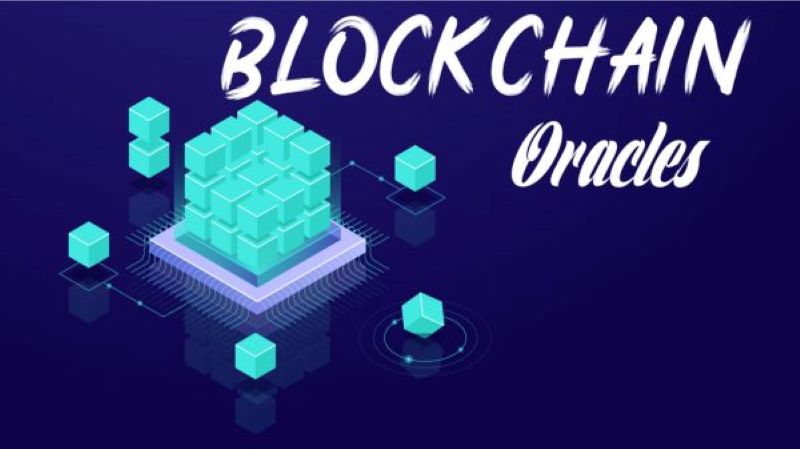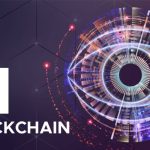Smart contracts are revolutionizing how we automate and secure agreements on the blockchain. Yet, their true potential remains untapped without a crucial element: oracles. These hidden gems bridge the gap between the digital and physical worlds, enabling smart contracts to interact with real-world data and events. Join us as we unlock the secrets of oracles and explore how they are the key to unlocking the full potential of smart contracts.
What are smart contracts?
Smart contracts are self-executing contracts where the terms of agreement between parties are directly written into code. This code exists and operates on a blockchain network, a decentralized and distributed ledger technology.
What is Oracle?
An oracle, in the context of blockchain technology, is a bridge that connects blockchain networks to external data sources. It functions as a reliable intermediary, fetching and verifying data from the real world and providing it to smart contracts on the blockchain. Essentially, oracles act as information carriers, enabling decentralized applications (dApps) to interact with and react to real-world events and information.
Why do smart contracts need oracles?
Smart contracts, despite their inherent logic and automation capabilities, operate within the confines of the blockchain. They are unable to directly access information from the real world, limiting their functionality in scenarios that require external data inputs. This is where oracles come in. Oracles act as bridges between the blockchain and the external world, providing smart contracts with the necessary data to trigger their execution.
For example, a smart contract designed to facilitate a bet on the outcome of a sports match needs the final score to determine the winner and execute the payout. An oracle can fetch this information from a trusted source, such as a sports data provider, and deliver it to the smart contract, enabling it to fulfill its function.
Without oracles, many real-world applications of smart contracts would be impossible, as they would lack the necessary information to trigger their execution. Oracles, therefore, play a crucial role in expanding the scope and functionality of smart contracts, making them applicable to a wide range of use cases that involve real-world data and events.
How does a Blockchain Oracle Service Work?
Blockchain oracle services function as intermediaries, facilitating communication between smart contracts and external data sources. They acquire data from trusted sources like APIs or IoT devices, verify its accuracy to ensure integrity, and then transmit this validated data to smart contracts on the blockchain. This transmission, often achieved through API calls or specialized protocols, allows the smart contract to access real-world information and execute actions based on the data received.
What are the advantages and disadvantages of Oracle?
Oracles offer significant advantages for blockchain applications, enabling them to interact with the real world by providing access to external data. This allows for the creation of more dynamic and responsive dApps that can adapt to real-time events and market conditions. Additionally, oracles ensure data integrity and trust by verifying the accuracy of information before it is used within smart contracts, enhancing the overall reliability of the blockchain application. Moreover, oracles facilitate interoperability between different blockchain networks and external systems, expanding the possibilities for cross-chain applications and creating a more interconnected ecosystem.

However, oracles also present certain disadvantages and risks. Some oracles introduce a level of centralization, relying on trusted entities to provide accurate data. This can create a single point of failure, as the integrity of the oracle directly impacts the reliability of the dApp. Security is another concern, as poorly implemented oracles can be vulnerable to manipulation, hacking, or unauthorized access. Additionally, privacy concerns arise when oracles require access to sensitive data, as this could potentially expose personal information. Lastly, the reliability and accuracy of oracles are dependent on the external data sources they utilize. If these sources are unreliable or compromised, the data provided to the blockchain application can be incorrect or misleading, leading to unintended consequences or inaccurate decisions.
How to use Oracle in smart contracts?
Utilizing an oracle involves integrating it into your blockchain application or smart contract. Begin by researching and selecting a reliable oracle service that aligns with your specific needs, considering factors like reputation, security, and data sources. Next, clearly define the type of external data required for your application’s functionality, such as market prices or real-time events.
Proceed to integrate the chosen oracle service into your application using its provided APIs or SDKs. Specify the parameters and criteria for your data requests, including source, format, and update frequency. Once set up, request the desired data through API calls or function invocations.
Critically, validate the received data to ensure its accuracy and integrity. Implement mechanisms to cross-reference and verify the information against multiple sources or consensus algorithms.

Once validated, integrate the retrieved data into your application’s logic to enable real-time decision-making, trigger events, or perform other necessary operations based on the external data.
Throughout the process, prioritize security by securing communication with the oracle, verifying its authenticity, and implementing data encryption. Regular testing and monitoring of the oracle’s performance and data accuracy are essential for maintaining functionality.
Remember to refer to the specific oracle service’s documentation for detailed integration instructions, as implementation may vary depending on the provider and your programming environment.
Applications of oracles in smart contracts
iverse applications across various industries.
In Decentralized Finance (DeFi), oracles provide real-time price feeds for cryptocurrencies, ensuring accurate asset valuation for seamless token swaps, lending, borrowing, and fair liquidations. This empowers DeFi platforms to operate autonomously while maintaining accurate market data.
Oracles are also instrumental in revolutionizing supply chain management. By verifying real-world events like shipping updates, inventory levels, and product authenticity, they enhance transparency and traceability, combating fraud and ensuring product integrity throughout the supply chain.
The insurance and betting sectors are experiencing a significant transformation with oracles. Smart contracts can now automatically trigger insurance claims or execute bets based on real-world events like flight delays, sports results, or weather conditions, making these processes more efficient and transparent.
In the real estate industry, oracles are streamlining property transactions. They enable smart contracts to automate processes like title transfers and property management by securely fetching and validating crucial data like title deeds, ownership records, and property valuations.
These are just a few examples of how oracles are empowering smart contracts to interact with the real world, opening up a vast array of possibilities for innovation and disruption across various industries.


